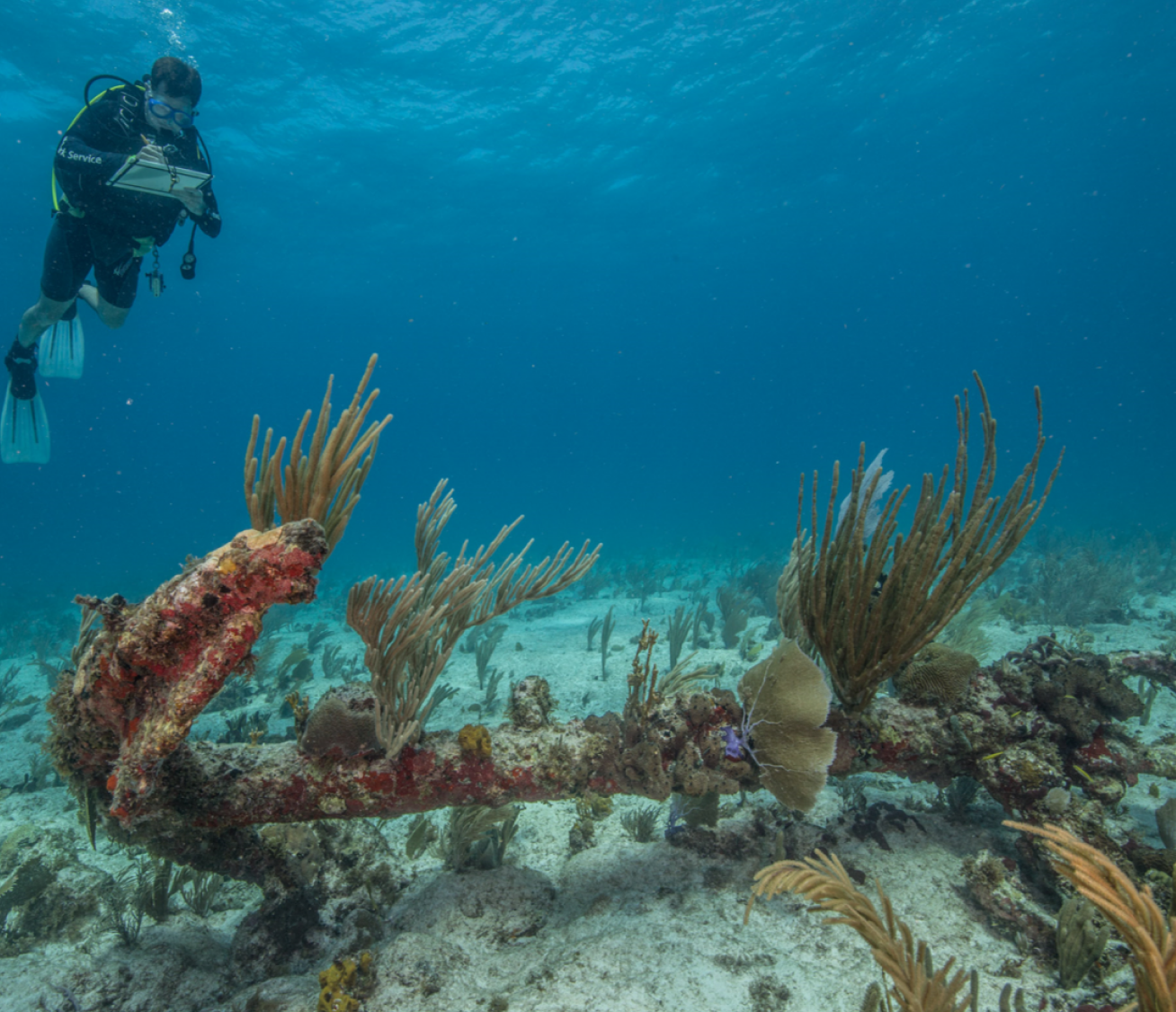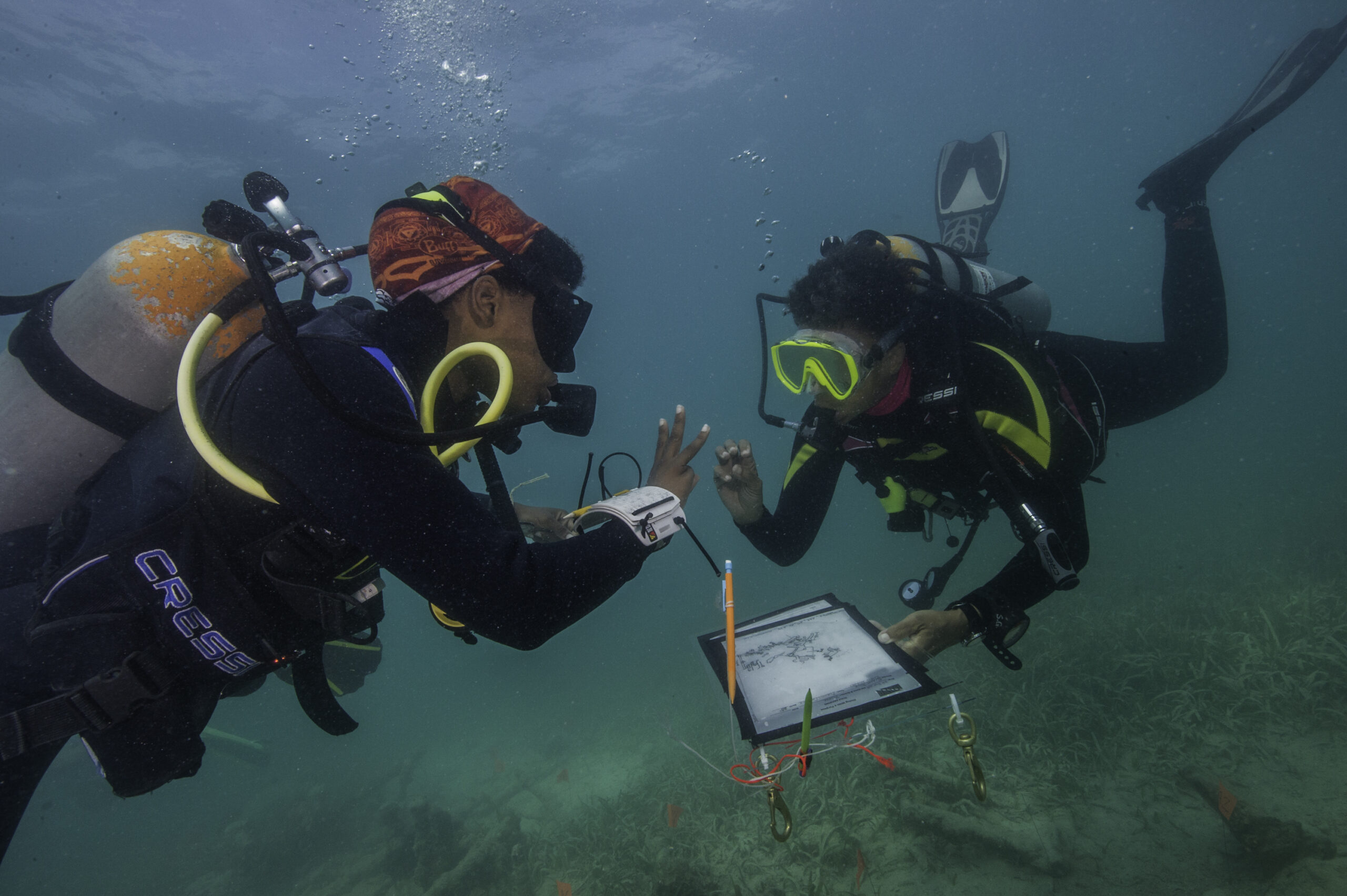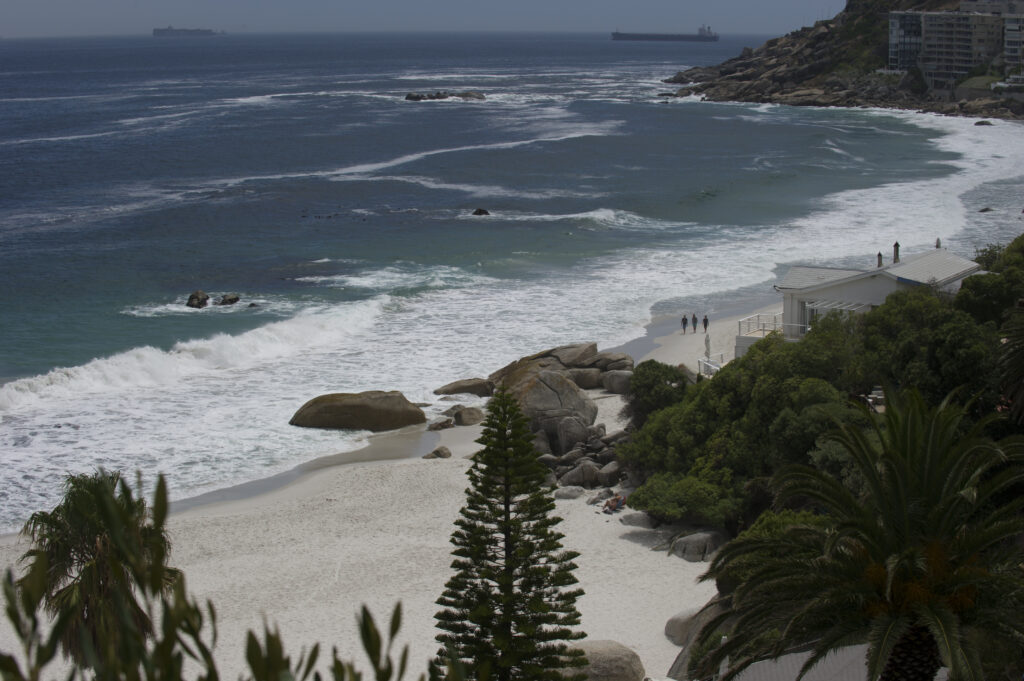History of the Slave Wrecks Project
October 5, 2023
SWP was launched in 2008 as the “African Slave Wrecks and Diaspora Heritage Routes Project,” as a collaboration coordinated by The George Washington University with its two other co-founding partners, the United States National Park Service-Submerged Resources Center, and IZIKO Museums of South Africa. Other key early global partners included the SAVE Travel Alliance and the Southern African Heritage Resources Agency. In 2011, Diving With a Purpose and the Smithsonian National Museum of African American History and Culture (NMAAHC) joined the project, which was renamed the Slave Wrecks Project (SWP) in 2015.
Since 2015, SWP has been co-coordinated by NMAAHC and GWU, with NMAAHC serving as the network’s institutional host and GWU administering SWP’s international coordinating office.

The first major work undertaken by the SWP was the search for the slave ship São José Paquete d’Africa, a Portuguese vessel that sank in 1794 off Cape Town, South Africa, en route from Mozambique to Brazil. The SWP announced its discovery and formal identification to the world in 2015, resulting in significant international press and continued opportunities for engagement since. The collaboration between SWP’s team of archaeologists, historians, conservators, divers, and descendants brought the story of this vessel—and the 512 captive Mozambicans who were aboard when it sank—back into global memory. The search for and recovery of the São José has provided an opportunity for international discussions and moments of healing between descendants in Mozambique, South Africa, and Brazil, and helped to impress the importance of this history and its legacies upon the world. Artifacts recovered from the São José Paquete d’Africa are on display at the NMAAHC in Washington, D.C., U.S.A. and Iziko Museums of South Africa in Cape Town.
Learn more about SWP’s work with the São José by watching the video above!
Since 2015, the SWP has continued its global work, engaging in collaborative projects centered around the histories of global slavery and its living legacies, with a focus on maritime environments. Our work has taken us to St. Croix, U.S.V.I.; Africatown, Alabama, U.S.A.; Biscayne, Florida, U.S.A.; Brazil; Senegal; and continued work in Mozambique. Our signature approach focuses on collaborations that cross disciplinary boundaries, while bringing colleagues from around the world to sites to work together to uncover these submerged pasts. We are deeply invested in training new generations of scholars in maritime archaeology of the slave trade, with a particular focus on training scholars of African descent who may lack opportunities to conduct this type of work in their home countries.
In 2022, the SWP announced our new formal training program, Slave Wrecks Project Academy (SWP-A). SWP-A aims to provide opportunities for advanced study in the maritime archaeology of the slave trade for early career scholars and advanced students from across the African diaspora to engage in fieldwork as well as more formal classroom training with our global, interdisciplinary SWP staff. Simultaneously, we hope by bringing together these groups of students from across the world, we will create a new cohort of scholars committed to the transformation of the field of maritime archaeology. SWP-A participants join our staff at our active fieldwork locations across the world for hands-on learning in a reflexive environment, where students and teachers learn from each other throughout the process of scientific and historical inquiry.


